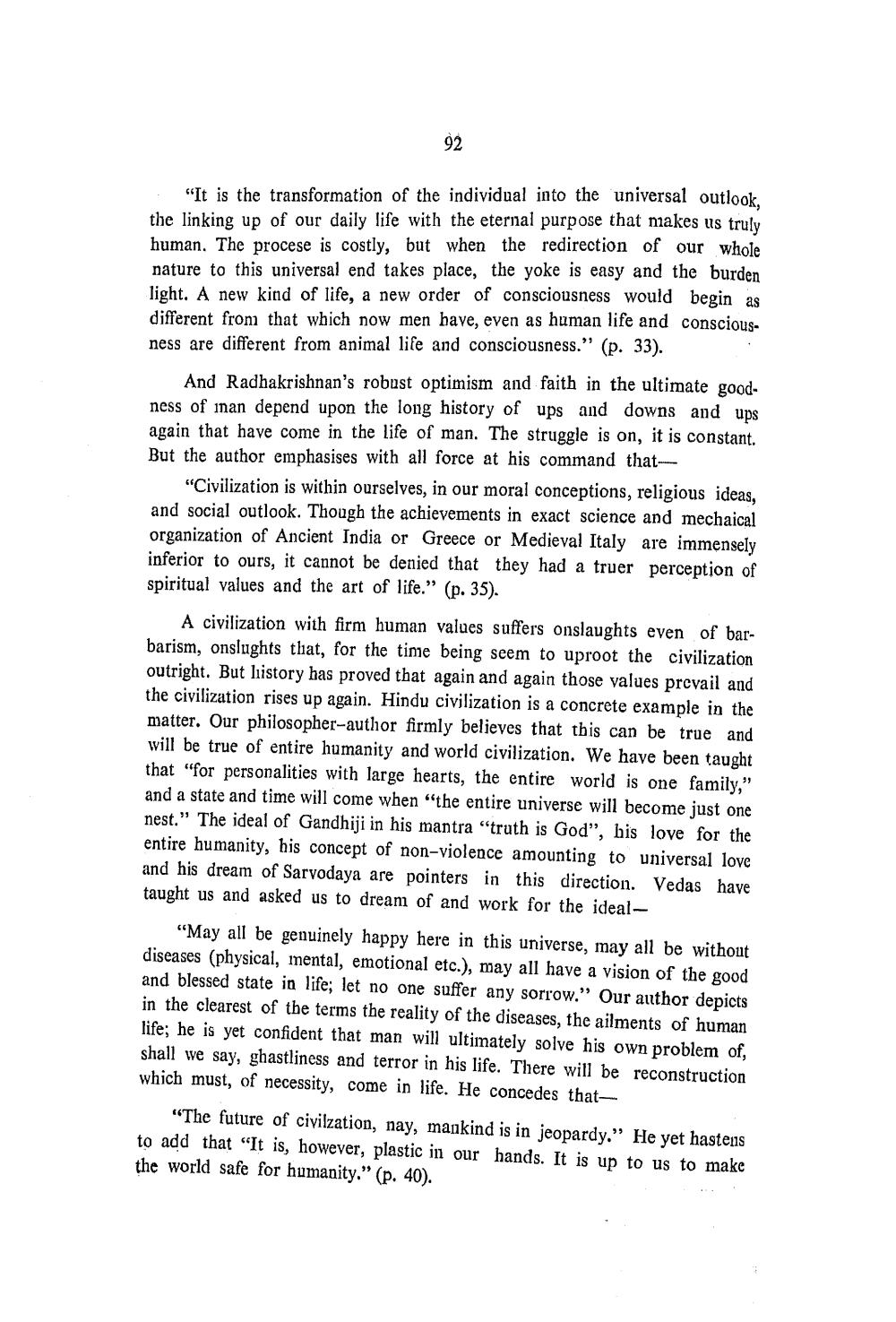________________
92
"It is the transformation of the individual into the universal outlook. the linking up of our daily life with the eternal purpose that makes us truly human. The procese is costly, but when the redirection of our whole nature to this universal end takes place, the yoke is easy and the burden light. A new kind of life, a new order of consciousness would begin as different from that which now men have, even as human life and consciousness are different from animal life and consciousness.” (p. 33).
And Radhakrishnan's robust optimism and faith in the ultimate goodness of man depend upon the long history of ups and downs and ups again that have come in the life of man. The struggle is on, it is constant. But the author emphasises with all force at his command that
“Civilization is within ourselves, in our moral conceptions, religious ideas, and social outlook. Though the achievements in exact science and mechaical organization of Ancient India or Greece or Medieval Italy are immensely inferior to ours, it cannot be denied that they had a truer perception of spiritual values and the art of life.” (p. 35).
A civilization with firm human values suffers onslaughts even of barbarism, onslughts that, for the time being seem to uproot the civilization outright. But liistory has proved that again and again those values prevail and the civilization rises up again. Hindu civilization is a concrete example in the matter. Our philosopher-author firmly believes that this can be true and will be true of entire humanity and world civilization. We have been taught that "for personalities with large hearts, the entire world is one family," and a state and time will come when “the entire universe will become just one nest." The ideal of Gandhiji in his mantra “truth is God", his love for the entire humanity, his concept of non-violence amounting to universal love and his dream of Sarvodaya are pointers in this direction. Vedas have taught us and asked us to dream of and work for the ideal -
“May all be genuinely happy here in this universe, may all be without diseases (physical, mental, emotional etc.), may all have a vision of the good and blessed state in life; let no one suffer any sorrow." Our author depicts in the clearest of the terms the reality of the diseases, the ailments of human life; he is yet confident that man will ultimately solve his own problem of, shall we say, ghastliness and terror in his life. There will be reconstruction which must, of necessity, come in life. He concedes that
"The future of civilzation, nay, mankind is in jeopardy." He yet hasteus to add that "It is, however, plastic in our hands. It is up to us to make the world safe for humanity.” (p. 40).




